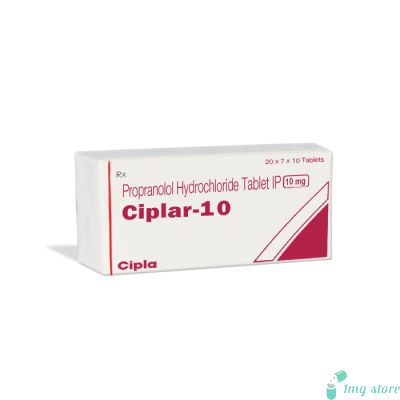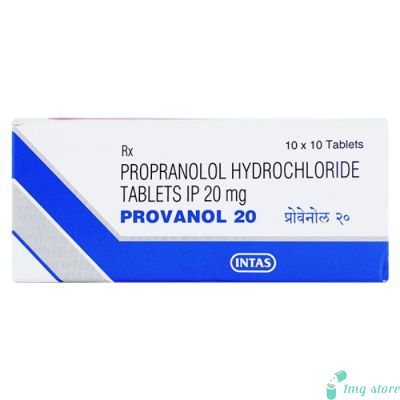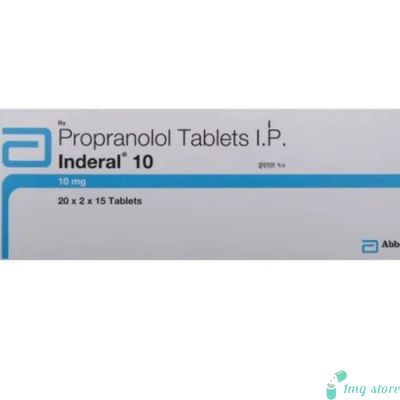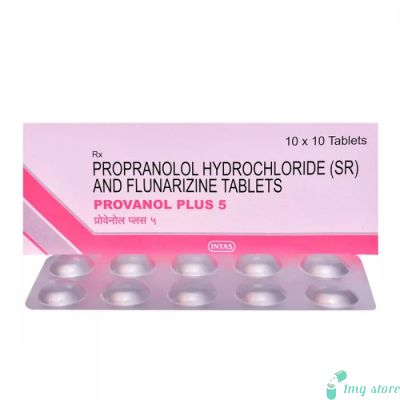Cordarone Tablet (Amiodarone)
Buy Cordarone Tablet (Amiodarone), Amiodarone is a medication utilized to treat different forms of severe irregular heartbeat (arrhythmia), including fibrillation and tachycardia. It belongs to the class of anti-arrhythmic drugs and works quickly to restore a stable and regular rhythm to your heart.
Introducing Amiodarone Tablet (Cordarone)
Amiodarone Tablet (Cordarone) is a medication commonly known as Pacerone. Amiodarone is an antiarrhythmic medication used in the treatment of various cardiac conditions. It is highly effective in managing and preventing abnormal heart rhythms.
Amiodarone tablet, available under the brand names Cordarone and Pacerone, is widely prescribed by healthcare professionals. This medication belongs to the class of antiarrhythmic drugs, specifically categorized as a class III agent. Its unique mechanism of action helps regulate the electrical activity of the heart, restoring a normal heart rhythm. Amiodarone has proven to be a reliable and versatile treatment option for individuals with different types of arrhythmias, including atrial fibrillation, ventricular tachycardia, and supraventricular tachycardia. Its effectiveness in controlling these irregular heart rhythms has made it a popular choice among healthcare providers. Amiodarone is available in tablet form and is usually taken orally. The dosage and duration of treatment may vary depending on the individual patient's condition and response to the medication. Regular monitoring of cardiac function and potential side effects is essential during amiodarone treatment.
It's important to note that amiodarone is a potent medication with a prolonged half-life, meaning it remains in the body for an extended period. Consequently, careful monitoring of drug levels and potential drug interactions is crucial to prevent adverse effects and ensure optimal therapeutic outcomes. While amiodarone has demonstrated excellent efficacy in managing arrhythmias, it is not without potential side effects. Common adverse effects may include fatigue, dizziness, nausea, and skin discoloration. More severe but rare side effects can affect the lungs, liver, thyroid, and eyes. Therefore, close monitoring by a healthcare professional is essential throughout the course of amiodarone treatment.
In summary, amiodarone tablet (Cordarone/Pacerone) is a highly effective antiarrhythmic medication commonly prescribed for individuals with various cardiac rhythm disorders. Its ability to restore normal heart rhythm and its versatility in treating different types of arrhythmias make it a valuable option for patients in need of cardiac medication. However, due to potential side effects and drug interactions, it should always be used under the supervision of a healthcare professional.
Dosage and benefits of Amiodarone Tablet (Cordarone/Pacerone):
Dosage: The dosage of Amiodarone Tablet varies depending on the individual's condition and response to the medication. It is typically taken orally as prescribed by a healthcare professional. The dosage may be adjusted over time to achieve the desired therapeutic effect.
Benefits: Amiodarone antiarrhythmic medication that offers several benefits in managing cardiac rhythm disorders. It helps regulate the electrical activity of the heart, restoring a normal heart rhythm. The key benefits of Amiodarone include:
Effective Arrhythmia Control: Amiodarone has shown high efficacy in managing different types of arrhythmias, such as atrial fibrillation, ventricular tachycardia, and supraventricular tachycardia. It helps control abnormal heart rhythms and reduce symptoms associated with them.
Versatility: Amiodarone is known for its versatility in treating various types of arrhythmias. It can be beneficial for patients with different underlying heart conditions, providing a reliable treatment option for a wide range of individuals.
Long-Lasting Effects: Amiodarone has a prolonged half-life, meaning it remains in the body for an extended period. This allows for sustained therapeutic effects, reducing the frequency and severity of recurrent arrhythmias.
Prevention of Life-Threatening Arrhythmias: By stabilizing the heart's electrical activity, Amiodarone helps prevent potentially life-threatening arrhythmias, such as ventricular fibrillation or ventricular tachycardia, which can lead to cardiac arrest.
Improves Quality of Life: By controlling abnormal heart rhythms, Amiodarone can alleviate symptoms associated with arrhythmias, such as palpitations, shortness of breath, and dizziness. This improvement in symptoms can significantly enhance the overall quality of life for individuals with cardiac rhythm disorders.
Precautions regarding Amiodarone Tablet (Cordarone/Pacerone) with a focus on the heart and blood pressure:
- Regular monitoring of heart function, including electrocardiograms (ECGs) and cardiac assessments, is crucial during Amiodarone treatment. This helps ensure that the medication is effectively controlling abnormal heart rhythms and minimizing any potential risks.
- Amiodarone medication may affect blood pressure levels. Regular monitoring of blood pressure is important to detect any changes and allow for appropriate management, especially in individuals with pre-existing hypertension.
- Amiodarone can interfere with thyroid hormone production, leading to hypothyroidism or hyperthyroidism. Thyroid function should be monitored regularly, including thyroid hormone levels and thyroid-stimulating hormone (TSH) levels, to promptly detect and manage any thyroid-related abnormalities.
- Rarely, Amiodarone may cause lung-related complications, such as pulmonary fibrosis or pneumonitis. Monitoring lung function through regular imaging tests and pulmonary function tests can help identify any signs of lung damage.
- Amiodarone can affect liver function, leading to liver abnormalities. Regular liver function tests should be conducted to monitor liver enzyme levels and ensure the medication is not causing any liver damage.
- Amiodarone has the potential to cause eye-related complications, such as corneal deposits or optic neuropathy. Regular eye examinations, including visual acuity tests and ophthalmologic evaluations, are recommended to detect any ocular changes.
- Amiodarone may increase sensitivity to sunlight, leading to a higher risk of sunburn. It is advisable to use sunscreen and protective clothing when exposed to the sun while taking Amiodarone.
- Amiodarone may pose risks during pregnancy and breastfeeding. It is essential to discuss the potential benefits and risks with a healthcare professional if planning to become pregnant or while breastfeeding.
- It is important to strictly adhere to the prescribed dosage of Amiodarone and follow the healthcare professional's instructions. Do not modify the dosage or discontinue the medication without consulting a healthcare professional.
Major Application of Amiodarone Tablet (Cordarone/Pacerone):
Atrial Fibrillation: Amiodarone is commonly prescribed to manage atrial fibrillation, a condition characterized by irregular and rapid heartbeats in the upper chambers of the heart. It helps control heart rhythm and reduces symptoms associated with atrial fibrillation.
Ventricular Arrhythmias: Amiodarone is effective in treating ventricular arrhythmias, including ventricular tachycardia and ventricular fibrillation. It helps stabilize the heart's electrical activity, preventing life-threatening arrhythmias.
Supraventricular Arrhythmias: Supraventricular arrhythmias, such as supraventricular tachycardia or atrioventricular nodal reentrant tachycardia, can be managed with Amiodarone. It helps restore normal heart rhythm in these conditions.
Post-Cardiac Surgery Arrhythmias: Following cardiac surgery, some individuals may experience arrhythmias. Amiodarone can be used to prevent or manage these postoperative arrhythmias, promoting a stable heart rhythm during the recovery phase.
Refractory Arrhythmias: In cases where other antiarrhythmic medications have not been effective or well-tolerated, Amiodarone may be prescribed as a treatment option for refractory arrhythmias that have been difficult to control.
Sustained Ventricular Tachycardia: Amiodarone is commonly used in the treatment of sustained ventricular tachycardia, a potentially life-threatening arrhythmia originating in the lower chambers of the heart.
Cardiomyopathy: Amiodarone may be prescribed for individuals with certain types of cardiomyopathy, a condition where the heart muscle becomes weakened or enlarged. It helps control arrhythmias associated with cardiomyopathy and improves heart function.
Side effects of Amiodarone (Pacerone) in brief points:
- Fatigue
- Dizziness
- Nausea
- Skin discoloration
- Photosensitivity
- Thyroid abnormalities
- Lung complications
- Liver abnormalities
- Eye-related issues
- Potential for drug interactions
Can Amiodarone cause vision problems?
Answer: Yes, Amiodarone has the potential to cause eye-related complications such as corneal deposits or optic neuropathy. Regular eye examinations are recommended to monitor for any ocular changes.
How long does it take for Amiodarone to start working?
Answer: The onset of action for Amiodarone can vary. It may take several days or even weeks to see the full therapeutic effects. The healthcare professional will monitor your progress and adjust the dosage accordingly.
Can Amiodarone (Pacerone) be used during pregnancy?
Answer: The use of Amiodarone during pregnancy is generally discouraged due to potential risks to the fetus. It is important to discuss the benefits and risks with a healthcare professional if pregnancy is planned or suspected.
Are there any dietary restrictions while taking Amiodarone?
Answer: There are no specific dietary restrictions associated with Amiodarone. However, it is advisable to maintain a healthy diet and consult with a healthcare professional regarding any specific concerns.
Can I suddenly stop taking Amiodarone?
Answer: No, it is important to avoid abruptly stopping Amiodarone without consulting a healthcare professional. Sudden discontinuation can increase the risk of rebound arrhythmias. The dosage should be gradually tapered under medical supervision.
Remember Drug interactions with Amiodarone in brief points:
- Amiodarone may interact with medications used to manage heart rhythms, such as beta-blockers or calcium channel blockers, potentially intensifying their effects.
- The combination of Amiodarone (Pacerone) with other antiarrhythmic drugs can increase the risk of adverse effects and require close monitoring.
- Amiodarone can interact with medications metabolized by liver enzymes, potentially affecting their levels in the body.
- Combining Amiodarone with certain medications, like digoxin, may increase the risk of irregular heart rhythms and require careful monitoring.
- The use of Amiodarone with anticoagulant drugs, such as warfarin, may increase the risk of bleeding and necessitate dose adjustments.
- Amiodarone can interact with medications that affect thyroid function, such as levothyroxine, requiring thyroid hormone level monitoring.
- Concurrent use of Amiodarone with drugs that prolong the QT interval, such as certain antibiotics or antidepressants, can increase the risk of serious heart rhythm disturbances.
- Amiodarone may interact with grapefruit juice and its components, potentially altering the medication's effectiveness or increasing the risk of side effects.
| Manufacturer | : | Sanofi Aventis, India |
| Equivalent Brand | : | Cordarone |
| Generic Search | : | Amantadine Hcl |















